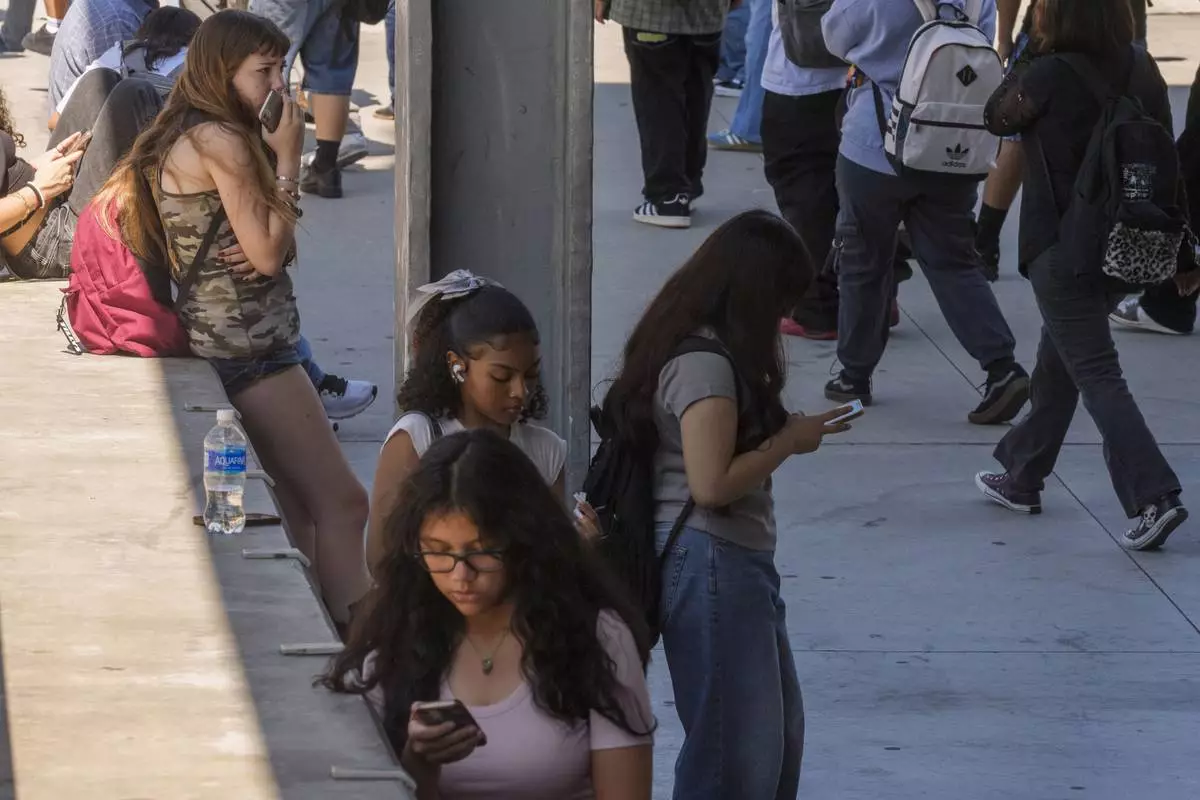WASHINGTON (AP) — Speaker Mike Johnson postponed a vote Wednesday on a temporary spending bill that would keep federal agencies and programs funded for six months as opposition from both parties thwarted his first attempt at avoiding a partial government shutdown in three weeks.
The legislation to continue government funding when the new budget year begins on Oct. 1 includes a requirement that people registering to vote must provide proof of citizenship. Johnson, R-La., signaled that he was not backing off linking the two main components of the bill.
"No vote today because we're in the consensus building business here in Congress. With small majorities, that's what you do," Johnson told reporters. "We're having thoughtful conversations, family conversations within the Republican conference and I believe we'll get there.”
Congress needs to pass a stopgap spending bill before Oct. 1 to avoid a federal shutdown just weeks before the election. The measure had been teed up for a vote on Wednesday afternoon, but Democrats are overwhelmingly opposed and enough Republicans had voiced opposition to raise serious doubts about whether the measure would pass.
The stopgap bill would generally continue existing funding through March 28. The GOP opponents of the bill argue that it continues spending at levels they consider excessive. And some Republicans simply won’t vote for any continuing resolution, arguing that Congress must return to passing its 12 annual spending bills separately rather than through the one or two catchall bills that have become the norm in recent decades.
Despite the dim prospects for the bill, Johnson had said just the day before he would push ahead with the vote. He has embraced concerns that some of the migrants who have entered the country at the U.S.-Mexico border in recent years could swing the elections, though it’s illegal for noncitizens to vote and research has shown that such voting is extremely rare.
“Congress has a lot of responsibilities, but two primary obligations — responsibly fund the government and make sure that our elections are free and fair and secure,” Johnson said. “And that's what we're working on.”
The House approved a bill with the proof of citizenship mandate back in July. Republicans believe there is value in revisiting the issue and making Democrats in competitive swing districts vote again.
Democrats are calling on Johnson to “stop wasting time” on a bill that will not become law and to work with them on a short-term spending measure that has support from both parties. At the end of the day, they say no spending bill can pass without bipartisan support and buy-in from a Democratic-led Senate and White House.
“Speaker Johnson, scrap your plan. Don’t just delay the vote. Find a better one that can pass in a bipartisan way," Senate Majority Leader Chuck Schumer said in response to Johnson's announcement.
But Johnson wasn't giving up on his proposal yet, saying House leadership would work on building support over the weekend. He said that ensuring that only U.S. citizens vote in federal elections is “the most pressing issue right now and we're going to get this job done.”
Republican presidential nominee Donald Trump on Tuesday seemingly encouraged a government shutdown if Republicans in the House and Senate “don’t get assurances on Election Security.” He said on the social media platform Truth Social that they should not go forward with a stopgap bill without such assurances.
Senate Republican leader Mitch McConnell, R-Ky., disagreed when asked about Trump’s post.
“Shutting down the government is always a bad idea, no matter what time of the year it is,” McConnell said.
With an election in just a few weeks, lawmakers are wanting to avoid flirting with a partial government shutdown. They're anxious to get home and campaign, which would indicate the two sides will work out a spending deal before the end of the month.
In addition to the proof of citizenship question, the other sticking point is how long to extend funding while negotiating terms of a full-year bill. Some House Republicans want to continue funding for six months in the belief that Trump will become president and give them a better chance at passing their priorities in the full-year bill. But others don't want to saddle the next president, regardless of party, with the spending battle.
Rep. Tom Cole, the Republican chairman of the House Appropriations Committee, said Johnson “fought the fight he needed to fight.”
“I think it reassures people on the right. He said, ‘look, I’m trying to do what you want. You just didn't give me the votes that I needed,'” Cole said.
Cole also suggested that the GOP's failure to rally around Johnson's proposal will result in a shorter extension. That's what Democrats are seeking. Many Republicans, including Cole, also prefer going that route, saying the next president, regardless of party, already has enough work to do.
“They've got plenty on the table. They've got to get their team in place. They've got a budget. They have to deal with all the taxes,” Cole said. “Why should we give them a chance of a government shutdown in a matter of weeks after they're inaugurated?”

Speaker of the House Mike Johnson, R-La., walks to a meeting at the Capitol in Washington, Wednesday, Sept. 11, 2024. (AP Photo/Jose Luis Magana)











